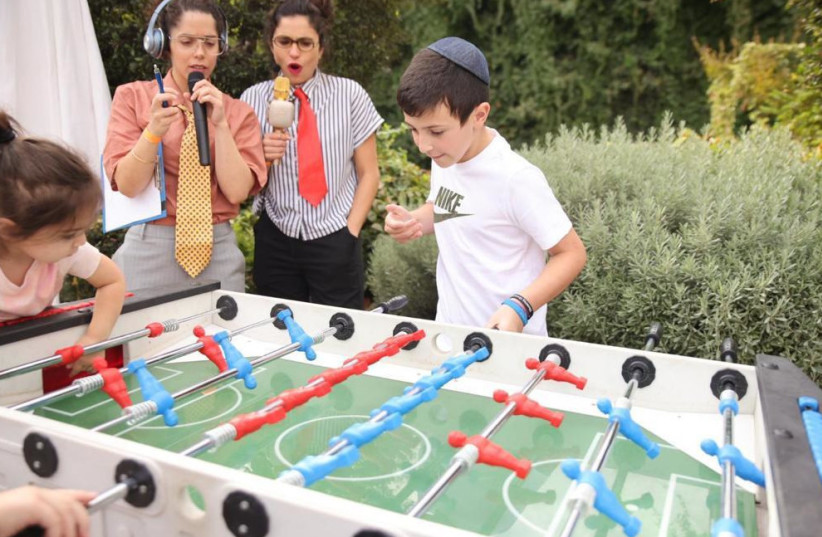"Sport is sociability; sport is not violence."
This was the key message delivered by President Isaac Herzog on Tuesday to visitors to the President's annual open house gathering on Sukkot.
It was not the first time that Herzog had spoken out against violence, but it was particularly poignant on Tuesday following the violent reactions of fans of Beitar Jerusalem when their team was defeated by Hapoel Tel Aviv
As it happened, the theme of this year's festivities at the President's Residence was sport with the emphasis on fair play and sport as a healthy, year-round social activity.
In fact, early in the morning, before the arrival of the public, the president, his wife Michal and some of his staff, tried their hands at various sports and had a great time.

But an event of this kind has far more appeal for children than for adults.
It was definitely children's day at the President's Residence as parents of large families found a place in which there were games, plenty of room in which their offspring could run around, and absolute safety and security at no charge.
For all that, there were far fewer people this year than in seasons past.
A photographer who arrived early said that contrary to previous years, there were no long queues of people waiting to be admitted.
On the grounds, where children were thoroughly enjoying themselves playing a wide assortment of games while their parents took photographs of them, there was lots of open space.
The only section of the complex that looked crowded was the main hall which was the venue for a gymnastics display, which attracted more attention than anything else.
Inside the president's sukkah
Hanging from the ceiling in the president's sukkah were balloons fashioned to resemble basketballs, soccer balls, and balls used in other sports. The walls of the sukkah featured prints of the images of Israeli sports champions, and the only other décor was a row of planters filled with flowers and shrubs.
"It's all rather sparse," commented an annual visitor who was expecting to see the varieties of Israeli fruits and vegetables that had been on display in the Sukkah in the past.
In fact, in terms of exhibits, there was very little to see. That did not seem to matter much because what most people wanted was a photograph with the president and his wife.
Initially, that was unwieldy, because the Herzogs stood behind a barrier, and people jostled each other in a bid to get close enough for a selfie with the president.
But later, the photo opportunity was changed to a more orderly arrangement, with people standing in line and quietly waiting their turn.
Most were particularly interested in having their children photographed with the Herzogs so that one day they will be able to look back on the time that they spent with the president of Israel, and when they tell their own children about meeting the president, the photograph will be proof.
Attendance picked up slightly at around noon, but not to any extensive level.
It may have been the threat of rain that kept people away; or it may have been the paucity of publicity or simply the fact that there were so many options from which to choose in Jerusalem, that people went elsewhere.
